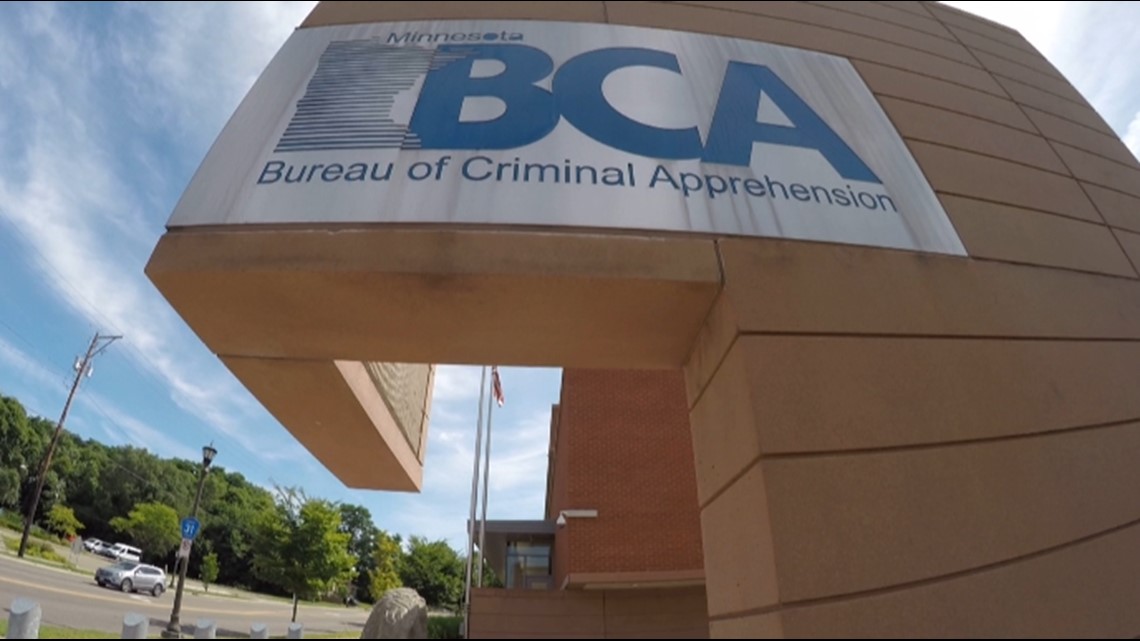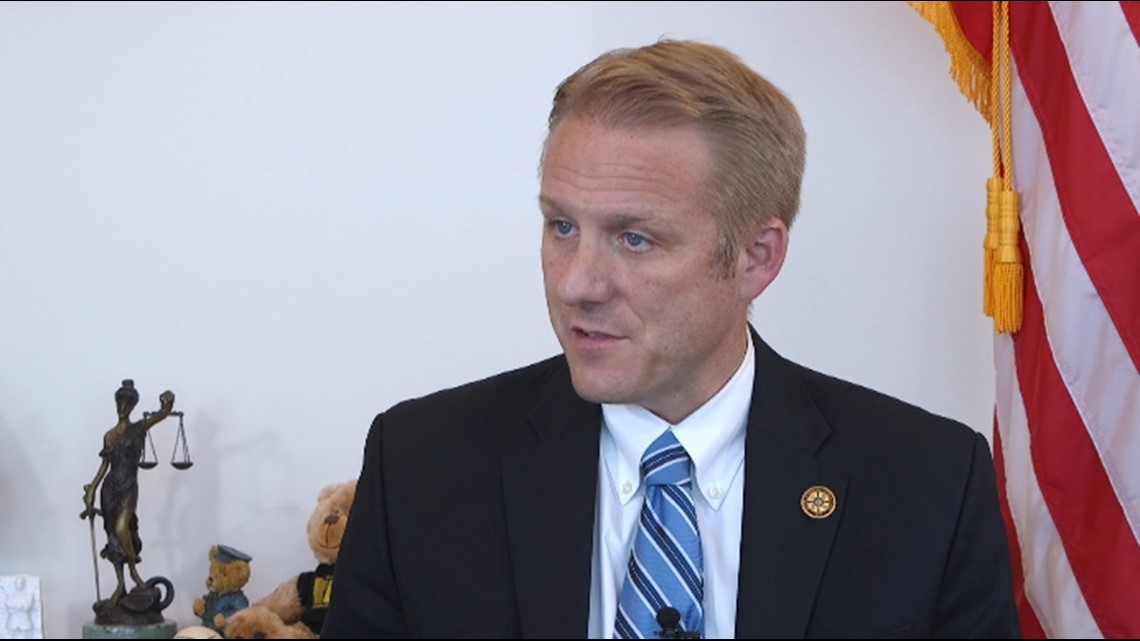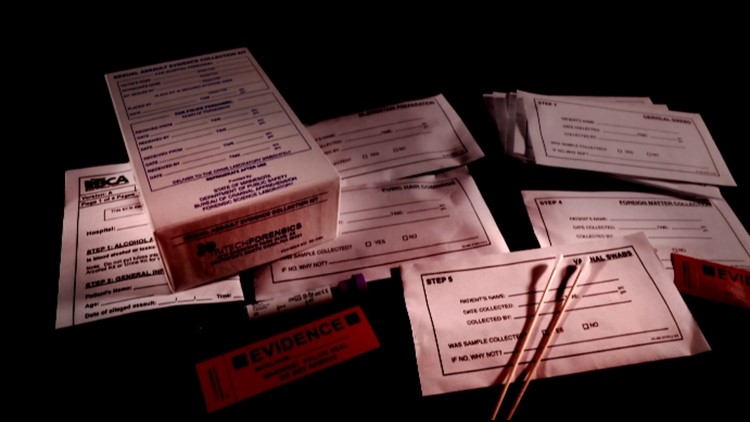ST PAUL, Minn. — Justice for victims of sexual assault whose rape kits sat untested on police department shelves for years – sometimes decades – is being further delayed.
DNA testing of those rape kits – evidence taken from the bodies of sexual assault victims during invasive hospital exams – was paused this year, KARE 11 has learned.
The state crime lab run by the Minnesota Bureau of Criminal Apprehension (BCA) redirected forensic testing resources in January to address a surge in violent crime in the Twin Cities metro that was overwhelming the lab’s capacity to process evidence. The surge included evidence from carjackings, shootings and murders being sent to the BCA for testing.
“We have a volume that’s higher than our capacity to be able to do those results in the time period that we find acceptable,” said BCA Superintendent Drew Evans. “And so that temporary pause (in testing older sexual assault kits) was designed to address the immediate need and the immediate surge we were seeing in cases coming into the BCA while at the same time never forgetting about those cases, that they’re there, and continually evaluating when it is that we can stop that pause and move back to complete those cases.”


In 2015, a state survey of law enforcement agencies identified 3,482 untested rape kits accumulated over years and never submitted for DNA testing.
That survey was launched amidst a nationwide scandal after police departments across the country were found to have tens of thousands of untested rape kits.
Federal funding became available in 2018 to finally process the state’s inventory of untested kits and reopen cases as part of what’s known as Minnesota Sexual Assault Kit Initiative Project (MN SAKI).
However, that testing initiative came to a halt in January of this year as a 30% surge in violent crime that began in 2020. Evans says the new cases overwhelmed the state lab’s ability to keep up with the demand for forensic testing.
“Unfortunately, that volume right now is at the point where we need additional staffing to be able to address the increase in crime,” Evans explained.
The prolonged delay, originally supposed to be just three months, is drawing criticism from victim advocates such as the Minnesota Coalition Against Sexual Assault (MNCASA).
MNCASA Executive Director Artika Roller sent KARE 11 the following statement:
“Several years ago, our state made a commitment to change the process of analyzing evidentiary kits to eliminate long delays. The current extended pause on testing kits is backtracking on that commitment to Victims and Survivors.
The delay in testing evidentiary kits and providing DNA evidence is a big obstacle to prosecuting sexual assault cases.
MNCASA is extremely disappointed the kit testing pause has been extended beyond three months. The turnaround time must be shortened. The state must stand firm on its commitment and give survivors the comfort and confidence that their cases are being taken seriously.”
KARE 11 asked the BCA Superintendent how he would respond to sexual assault victims who have been waiting for their shot at justice.
“Well, that’s the case with every case that comes in our door. Every single DNA case that comes into the BCA represents a victim, represents family members, represents society as a whole and it’s always difficult to make triaging decisions as to which cases take priority over which cases,” Evans said.


The BCA tells KARE 11 they will be moving two forensic scientists back to the sex assault team to speed processing on both new and these older kits this week.
The BCA tells KARE 11 there are currently 166 kits remaining before the backlog of previously untested kits is cleared.
Tests solve old cases
The processing of previously untested kits through the SAKI project has resulted in cold case victims of sexual assault finally receiving the justice so long denied them.
In Duluth, 444 kits were tested as part of the SAKI project, resulting in 367 criminal cases being reopened. To date, 15 charges have been filed and there have been seven convictions.
The case of young woman sexually assaulted in a Duluth basement in 2011 is a telling example of the power of testing these kits.
The woman told police in 2011 she had been in a Superior, Wisconsin bar when three unknown men came up and bought her drinks. Court and police records show the next thing she remembered was being in a Duluth basement, “raped as the male who was doing it told her she would not be able to prove it.”
The rapist was right.
The victim was initially unable to prove it.
As KARE 11 revealed in a 2019 investigation, it would be seven years before there was a break in the case when the federal criminal database returned a hit to a man named Jesse Le Fechner.
According to police and court records, Fechner’s DNA also placed him at the scene of another unsolved rape in 2008 at Park Point beach in Duluth.
A co-defendant, Dane Mullen, was convicted of the beach rape. In July, Fechner was acquitted by a jury in that case.
In August, however, Fechner was found guilty of sexually assaulting the woman he met in the Superior bar.
He’s scheduled to be sentenced in October.
Victims of sexual assault or those trying to help victims can find useful resources through The Minnesota Coalition Against Sexual Assault.
Correction: A prior version of this story stated Duluth police did not submit a sexual assault kit for testing at the time of the rape. It was submitted, but did not return a DNA hit until 2018.
Watch more KARE 11 Investigates:
Watch all of the latest stories from our award-winning investigative team in our special YouTube playlist:



